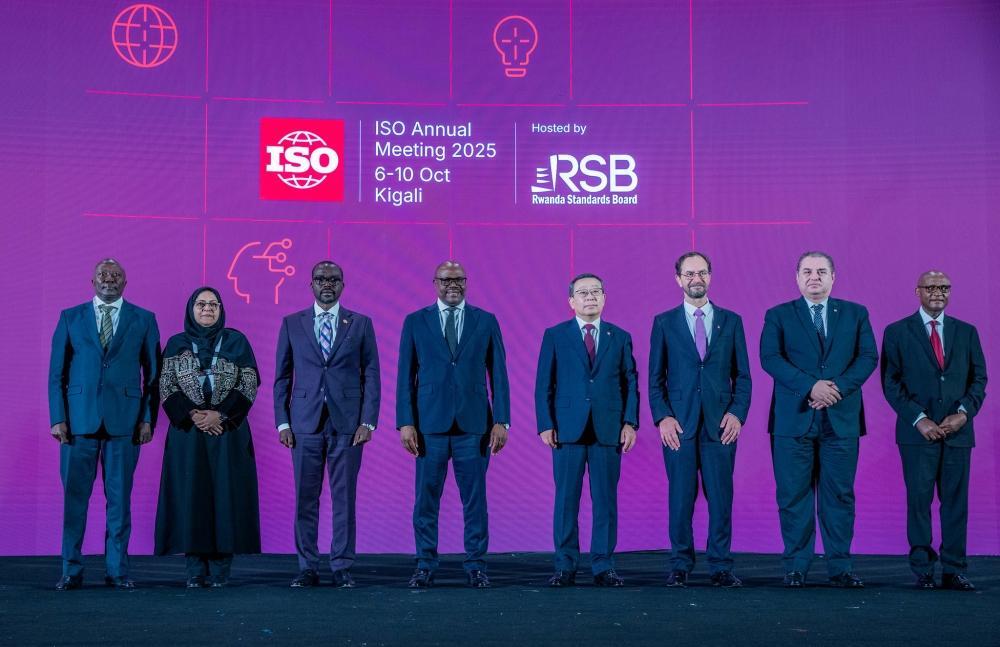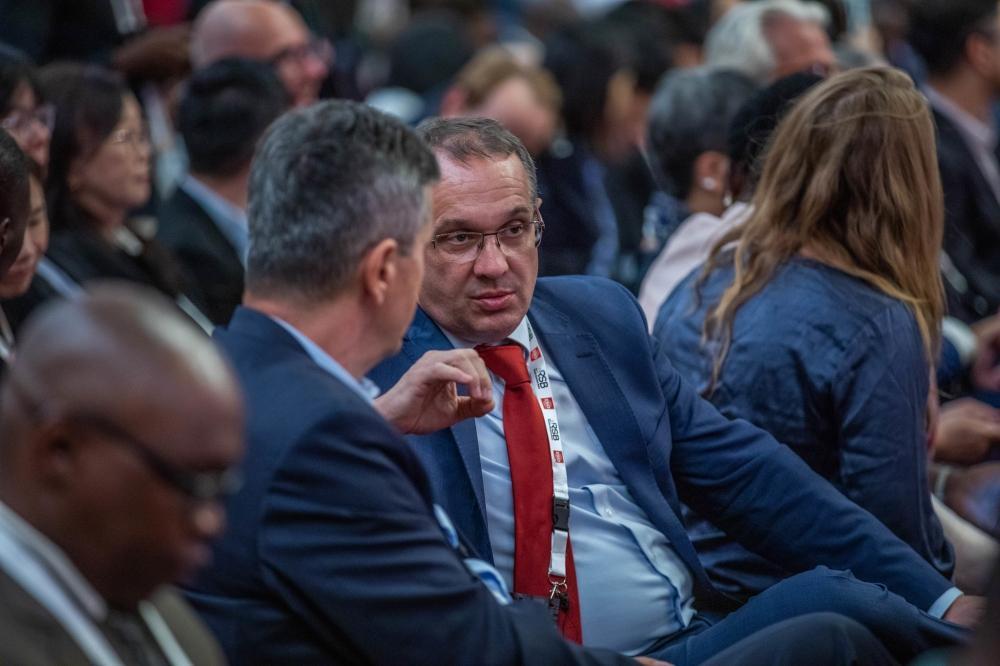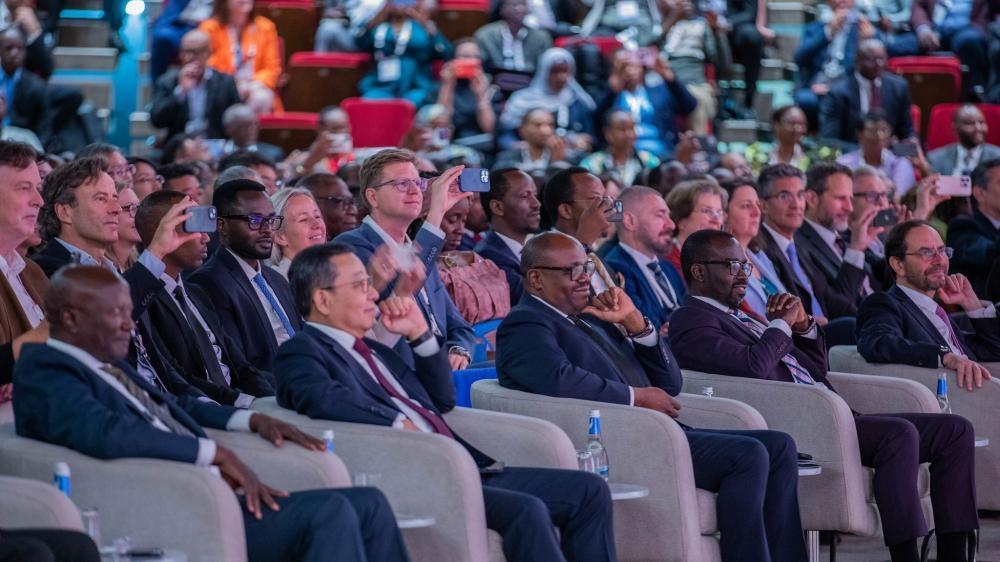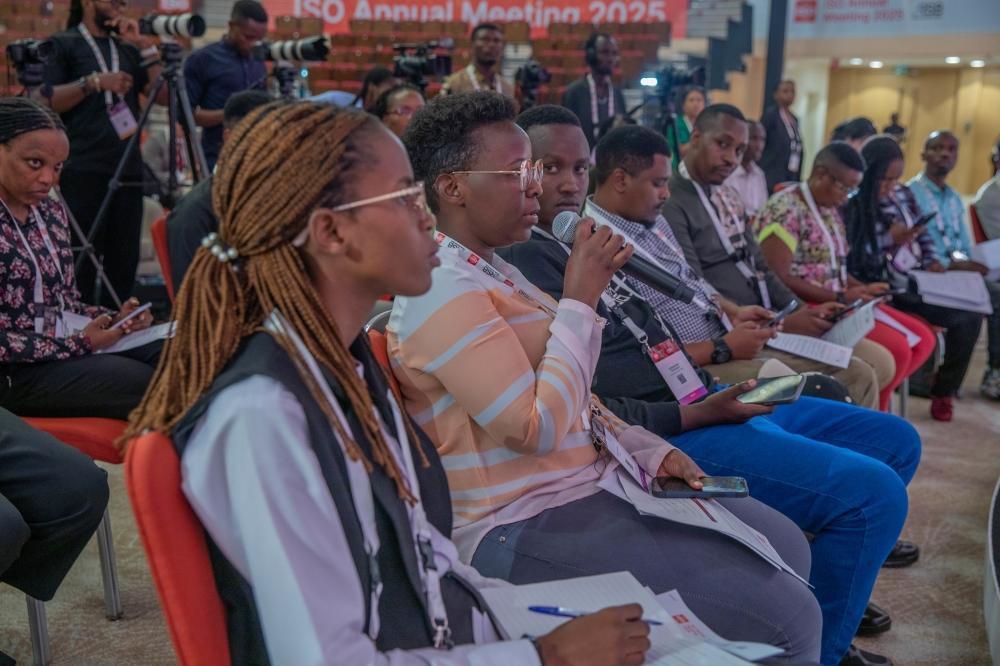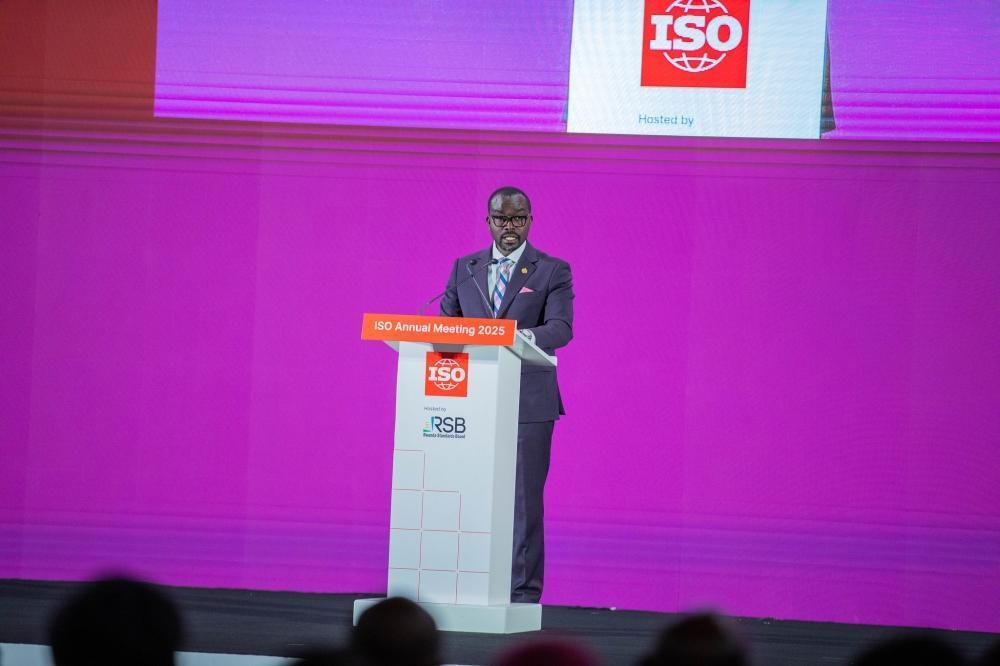Africa-Press – Rwanda. Businesses across Rwanda are expressing renewed optimism following the government’s decision to significantly cut the cost of standard certification services, a move that has boosted competitiveness, especially for micro, small, and medium enterprises (MSMEs).
The revised fees took effect in January 2025.
The announcement coincides with Rwanda’s hosting of the 2025 International Organisation for Standardisation (ISO) Annual Meeting, taking place from October 6 to 10 in Kigali under the theme “United for Impact.”
The global event has drawn more than 1,000 delegates from 176 countries, including leaders from governments, standards bodies, international organisations, corporations, consumer associations, and civil society.
Delegates interact during the conference
Lower fees lift small businesses
At a roundtable discussion on MSMEs held on the sidelines of the ISO meeting, participants stressed the crucial role small businesses play in developing economies by contributing significantly to GDP and job creation while noting that many have long struggled to meet international standards due to high compliance costs.
Sharon Akanyana, founder and Managing Director of Ishyo Foods, a Kigali-based dairy processing company, said the reduction in certification costs has been transformative.
“Last year, we used to pay Rwf50,000 for a single lab test. Now it’s down to Rwf10,000 – that’s an 80 per cent reduction,” she told The New Times.
She explained that each test, such as one confirming that yoghurt is free from salmonella bacteria, previously carried a hefty fee, and the cumulative cost of all required tests was overwhelming for small producers.
“The reductions also apply to calibration services for equipment like weighing scales and cold rooms. This is really big for SMEs. I’m not saying it because I’m here – it’s a major step forward,” she said, adding that small oil-processing firms have also benefited.
Ishyo Foods is now both S-Mark and HACCP certified, the former being Rwanda Standards Board’s (RSB) national quality certification, and the latter a globally recognised food safety system.
“When we applied for HACCP certification, the Rwanda Development Board covered 50 per cent of the costs,” she said. “We now supply several supermarkets and have started exporting to another East African Community country.”
Akanyana attributed her company’s over 100 per cent growth in the past two years largely to the adoption of quality standards.
Easing the cost of doing business
Speaking at a press briefing on the sidelines of the ISO event, Minister of Trade and Industry Prudence Sebahizi said the government is determined to make access to standards more affordable and inclusive.
“The government waived fees on several services and capped the maximum cost for any service at Rwf100,000 for large enterprises,” he said. “The fee you pay is commensurate with the service you get – but no company will pay more than Rwf100,000.”
Raymond Murenzi, Director General of the Rwanda Standards Board (RSB), said certification and testing costs had previously discouraged many businesses from pursuing quality assurance. The new pricing structure, he said, removes that barrier.
“Since the beginning of 2025, prices have been significantly reduced, allowing SMEs to access standardisation services easily and at very low rates,” Murenzi told The New Times.
Delegates at the 2025 International Organisation for Standardisation (ISO) Annual Meeting, taking place in Kigali from October 6 to 10. Photos by Craish Bahizi
He said that under the Zamukana Ubuziranenge (Maturity Model) programme which was launched in 2017 to help MSMEs achieve S-Mark certification, system certification, and other licenses — some small enterprises now receive certification services entirely free of charge.
“For large enterprises, the maximum certification fee is capped at Rwf100,000 per service,” he said.
Dramatic reductions
Providing examples, Murenzi noted that testing for micro-toxins in maize previously cost Rwf147,000 but now costs only Rwf10,000 – a 93 per cent reduction.
“A full set of maize tests that once cost up to Rwf900,000 is now capped at Rwf100,000. Currently, there is no test parameter that costs more than Rwf10,000,” he said.
He added that the decision aligns with Rwanda’s broader agenda to enhance competitiveness under the Made in Rwanda initiative, enabling local firms to meet both national and international quality requirements.
“This shows that Rwanda has taken concrete steps to make standard certification accessible and affordable for all,” Murenzi said.
Quality as a pathway to growth
Experts at the event said affordable certification is critical to helping small firms scale up, expand into export markets, and meet regional trade requirements.
“The cost barrier has been one of the biggest challenges for MSMEs,” said one participant. “With these changes, more Rwandan products can now compete regionally and globally.”
As Rwanda hosts the ISO Annual Meeting for the first time, the reforms are seen as timely, demonstrating the country’s resolve to make standards a key driver of industrialisation and sustainable growth.
The conference underway in Kigali is held under the theme “United for Impact.”
Trade minister Prudence Sebahizi said the government is determined to make access to standards more affordable and inclusive.
For More News And Analysis About Rwanda Follow Africa-Press

